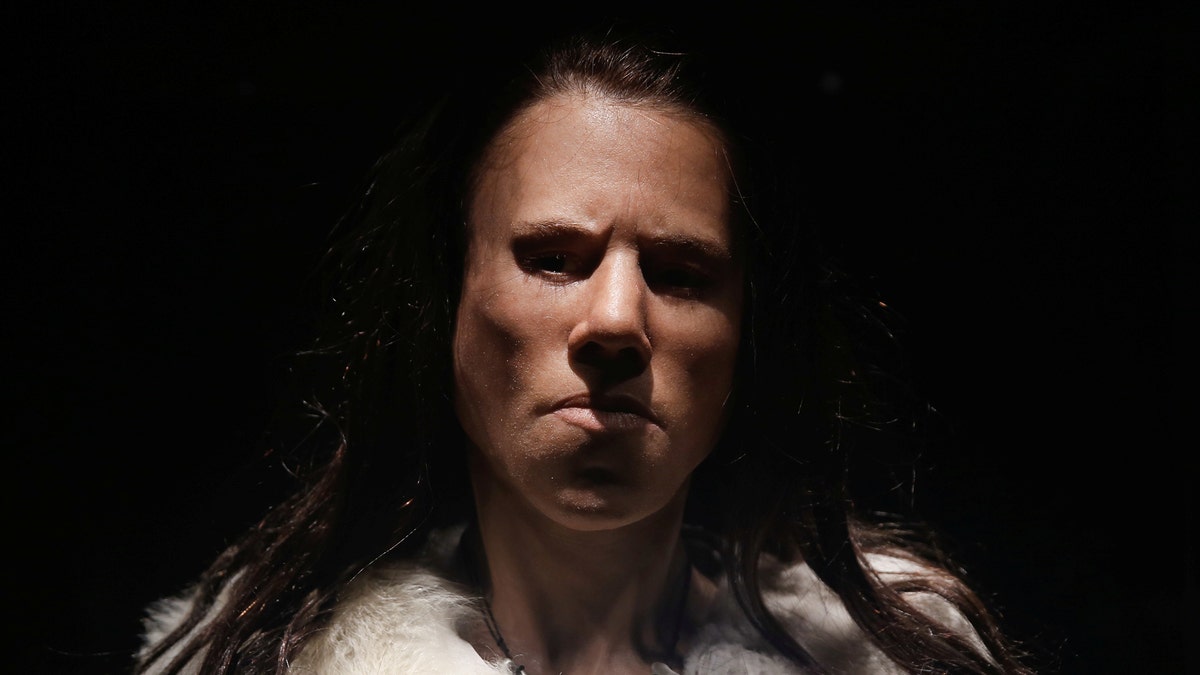
The reconstructed face of 'Dawn', a young woman who lived around 7,000 BC in a cave in Greece, is displayed during a presentation at the Acropolis museum in Athens, Greece, January 19, 2018. A Greek team led by an orthodontics professor has reconstructed the face of 'Dawn', from her remains, bringing to life a person who lived during the mesolithic period and uncovering details of her everyday existence. Picture taken January 19, 2018. (REUTERS/Costas Baltas)
Scientists have reconstructed the face of a 9,000-year-old Greek teenage girl, and her sour puss will look familiar to the parent of any adolescent.
Dubbed Avgi by archaeologists, she lived around 7000 BC, the end of the Mesolithic period.
Her name is Greek for dawn, and she is so called because she lived at what’s considered the dawn of civilization.
This era saw humans transition from hunter-gatherers to cultivating their own food.
Avgi’s skull was first unearthed at Theopetra Cave, a site in central Greece, in 1993. Her silicone-reconstructed face — which was created using a CT scan and 3D printing technology — is marked by a protruding jaw, furrowed brow and an irritated scowl. She’s believed to be between 15 and 18 years old, based on her bones and teeth.
“It’s not possible for her not to be angry during such an era,” orthodontics professor Manolis Papagrikorakis, who led the reconstruction team, told Reuters.
Avgi likely suffered from scurvy, was probably anemic and had hip and joint problems — the latter of which likely made it difficult for her to move and may have contributed to her death.
In addition to Papagrikorakis, it took a team of doctors — including an endocrinologist, orthopedist, neurologist, pathologist and radiologist — as well as a Swedish archaeologist and sculptor to achieve the final results.
Avgi is currently on display at the Acropolis Museum in Athens.
This story originally appeared in the New York Post.
